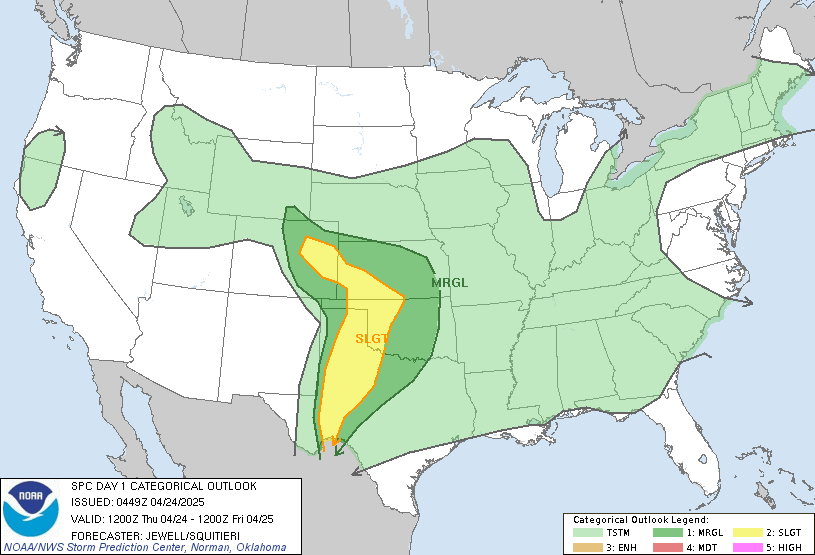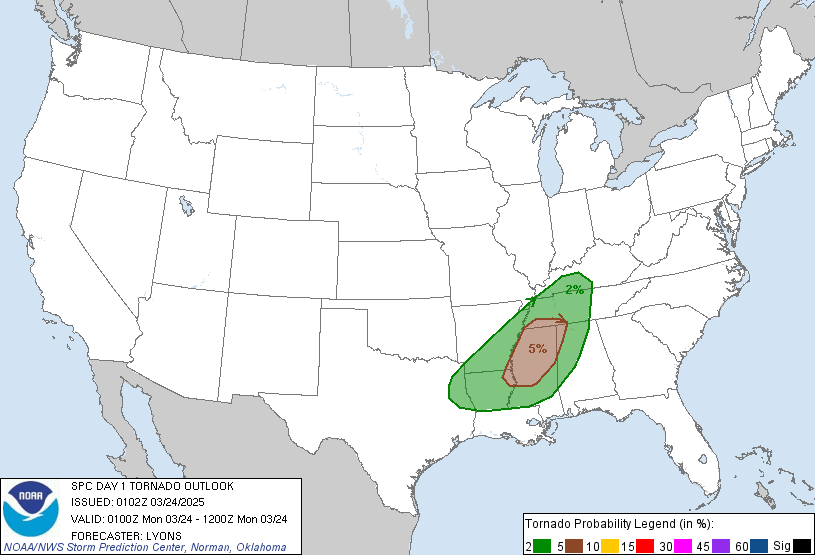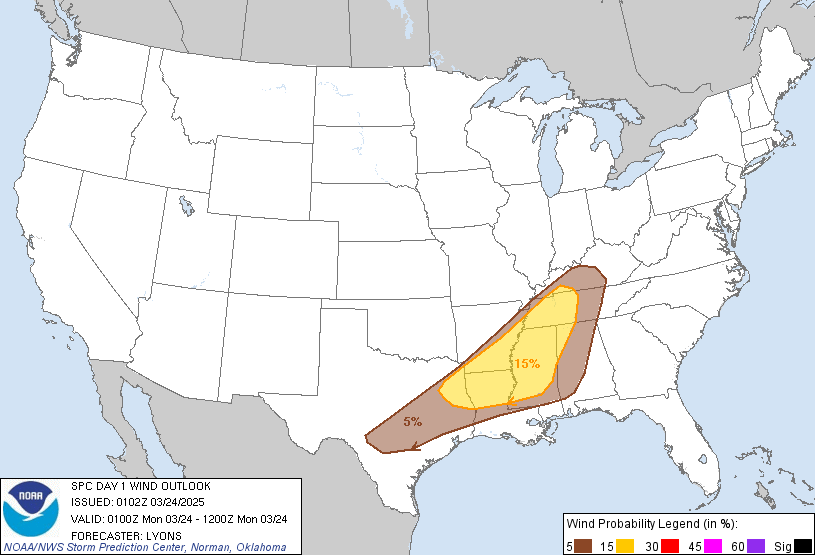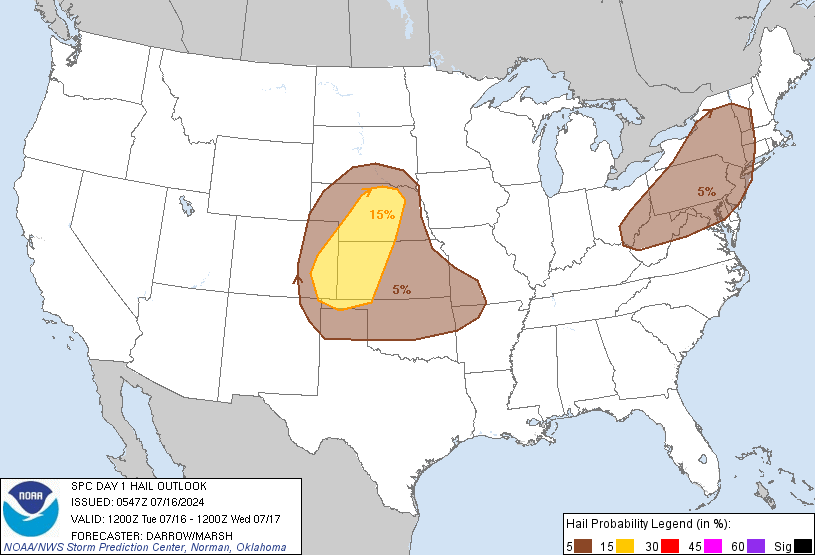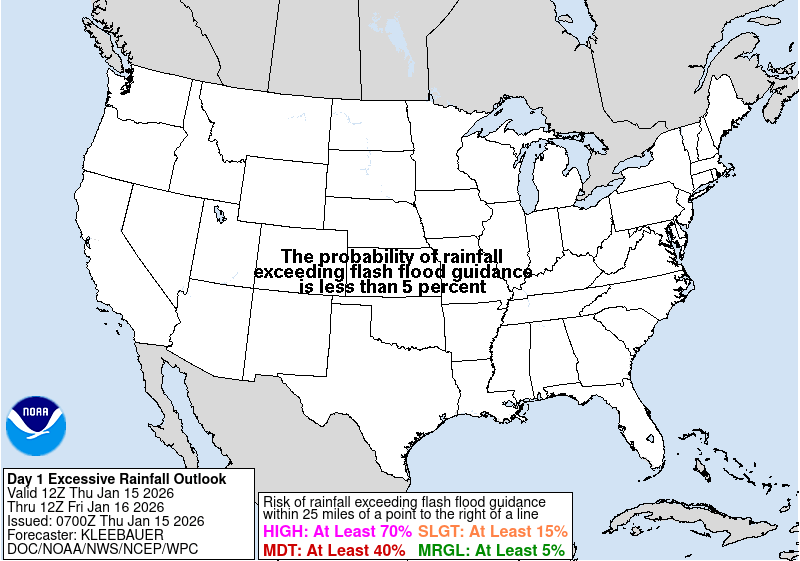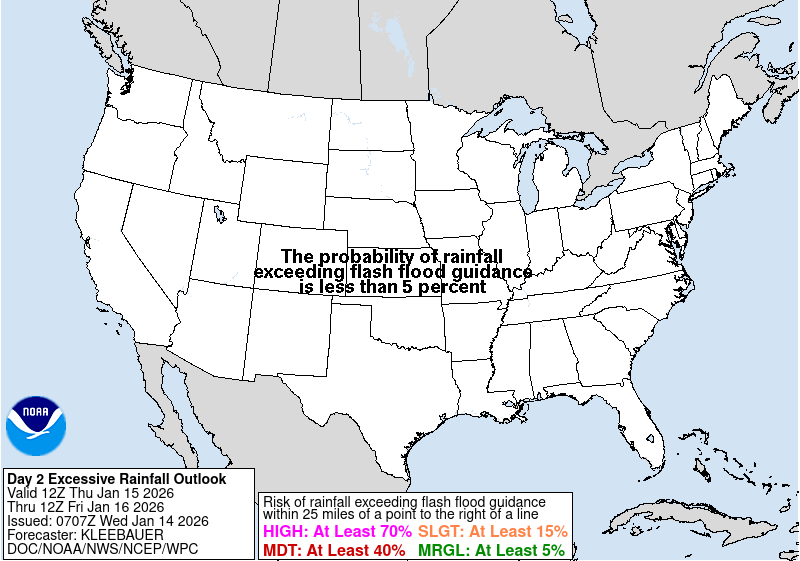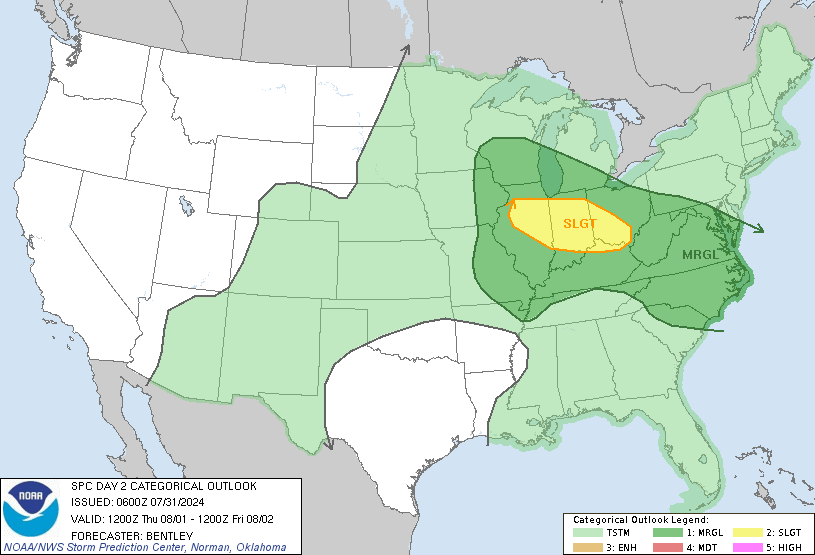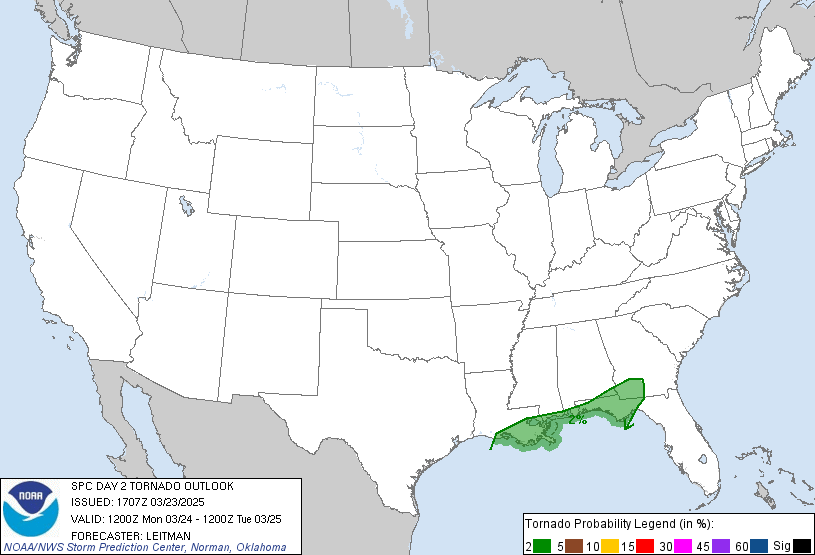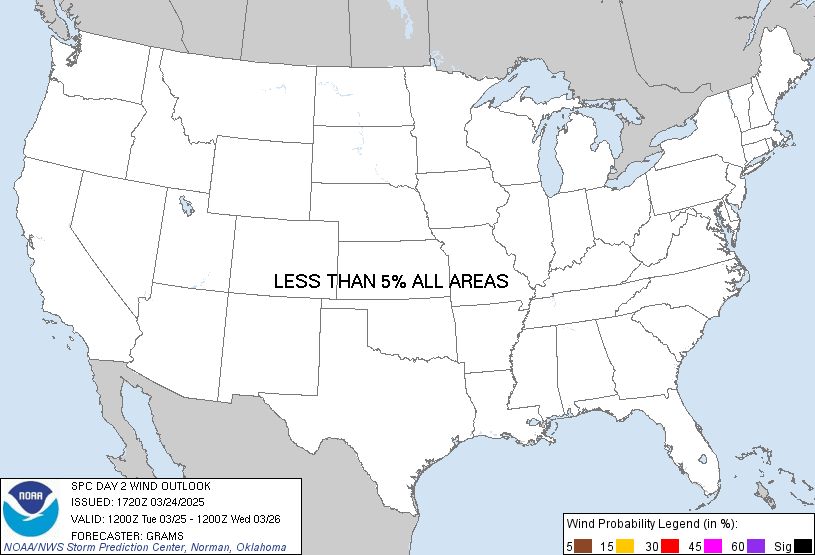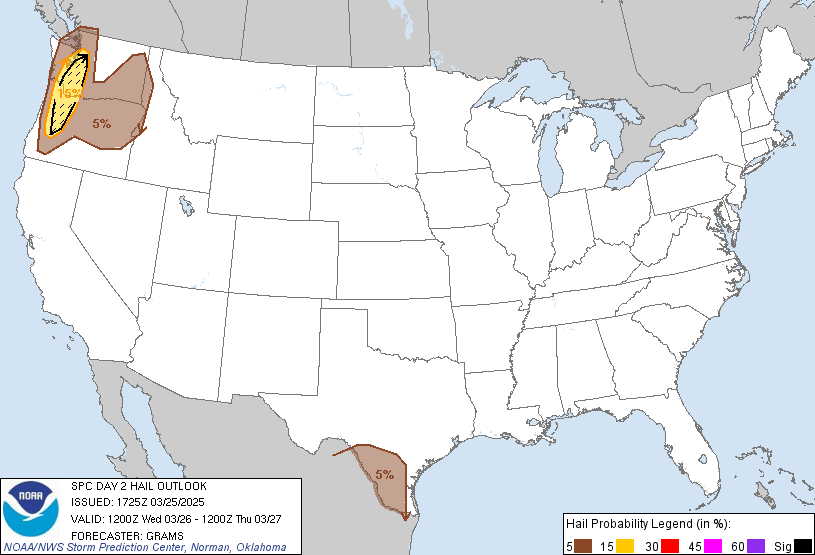Current Severe Weather Discussion Issued by the Storm Prediction Center
SPC AC 031941
Day 1 Convective Outlook
NWS Storm Prediction Center Norman OK
0141 PM CST Tue Feb 03 2026
Valid 032000Z - 041200Z
...NO SEVERE THUNDERSTORM AREAS FORECAST...
...SUMMARY...
Severe thunderstorms are not forecast through tonight across the
contiguous United States.
...20z Update...
Minor adjustments were made to bring the thunder line further north
into Middle Tennessee to account for trends over the last couple of
hours. Otherwise, the outlook remains unchanged. See previous
discussion below for more information.
..Thornton.. 02/03/2026
.PREV DISCUSSION... /ISSUED 1015 AM CST Tue Feb 03 2026/
...Synopsis...
Upper pattern is expected to amplify today, largely a consequence of
a deepening central/eastern CONUS upper trough. This large-scale
deepening will be fostered by the progression and evolution of
several shortwave troughs as they move through the western and
southern periphery of the parent upper troughing. The first of these
waves is currently moving southeastward through the Lower MO Valley,
with continued east-southeastward/eastward motion expected to take
this wave across the Mid-South, TN Valley, and central Appalachians
today.
A modest warm sector precedes this lead wave, with some low-level
moisture return currently noted across the TX Coastal Plains into
central and east TX. Some moisture return today will continue as the
shortwave progresses eastward and an associated cold front pushes
southeastward across TX and the Mid-South/Lower MS Valley. However,
much of the central Gulf basin remains fairly dry due to previous
frontal intrusions, likely limiting the overall moisture return from
the Lower MS Valley eastward across the remainder of the Southeast.
This will confine the better low-level moisture return to the TX
Gulf Coast and southwest LA. Warm-air advection across this modestly
moist portion of the warm sector could contribute to some buoyancy.
However, tempered heating and poor lapse rates will mitigate the
overall magnitude of any buoyancy that does develop. Even so,
occasional updrafts should still be deep enough for isolated
lightning, particularly from east TX into central LA where the
highest thunderstorm coverage is anticipated. Modest vertical shear
will be in place, but the overall severe risk will be limited by
weak buoyancy.
CLICK TO GET <a href="/products/outlook/archive/2026/KWNSPTSDY1_202602032000.txt">WUUS01 PTSDY1</a> PRODUCT
NOTE: THE NEXT DAY 1 OUTLOOK IS SCHEDULED BY 0100Z
<script type="text/javascript" src="/misc/utctime.js"></script>
View the SPC's Day 1 Outlook
Go to our Safety Center for information about Severe Weather Safety

